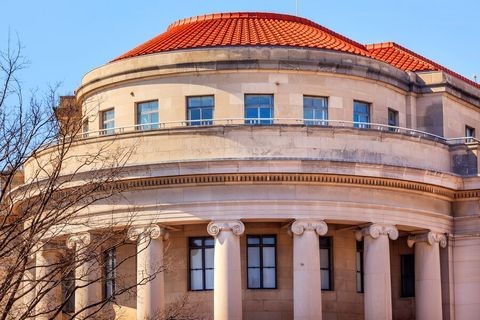Chief of Appeals Keyso Discusses Effect of COVID 19 on IRS Appeals at Crowell & Moring Tax Seminar
Client Alert | 2 min read | 10.21.20
On October 9, Andy Keyso, Chief of IRS Independent Office of Appeals (Appeals), provided an update regarding Appeals’ operations during the pandemic, participation by Exam in Appeals Conferences, increased managerial oversight into Appeals, and the Taxpayer First Act. A video of Mr. Keyso’s presentation at the 34th Annual Crowell & Moring LLP Managing Tax Audits and Appeals Seminar may be found here.
Appeals continues to work remotely during the pandemic. Mr. Keyso explained that Appeals Conferences are continuing and succeeding virtually using WebEx. Although taxpayers initially were given the option to temporarily delay Appeals Conferences until after the pandemic, that suspension ended August 31st. All taxpayers may now expect Appeals Conferences to proceed virtually. Appeals Conferences, Mr. Keyso said, are happening quickly because the virtual format of conferences makes it easier than ever for Appeals teams to convene and work through a taxpayer’s case. At the same time, some taxpayers may have longer wait times than normal due to the “paper shuffle” of Appeals. Specifically, Mr. Keyso explained that getting the paper file from Exam to Appeals is cumbersome and taking longer than normal. To expedite this process, Exam is now able to provide fully electronic files. Appeals also now uses email more and opened an online portal to allow taxpayers to provide documents directly to Appeals. Appeals hopes to continue to use these online resources post-pandemic.
Exam continues to participate in some Appeals Conferences, including virtual Appeals Conferences. As discussed last year with Mr. Keyso, a now-completed pilot program required certain Appeals Officers in large, complex cases to have Exam representatives participate in the Appeals Conference with the taxpayer’s representatives until settlement discussions began. Now, following the initiative, Appeals Officers continue to have discretion to invite Exam to participate in Appeals Conferences. Mr. Keyso said that Appeals has received some feedback from taxpayers and Appeals Officers already and will be receiving the results of a formal survey on the pilot program conducted through a third-party survey organization by the end of the year.
Mr. Keyso also discussed increased managerial oversight into Appeals. Cases over $500 million are to be briefed to Shelley Foster, Director of Examination Appeals. Cases over $1 billion are briefed directly to Mr. Keyso. This allows leadership in Appeals to be aware of all major cases and monitor the progress of those cases. Mr. Keyso confirmed that this program is not intended to centralize settlement decisions and that settlement authority remains with the Appeals Officers.
Lastly, Mr. Keyso discussed Appeals’ response to the Taxpayer First Act. Appeals is emphasizing independence and increasing employee training and communication of this independence to taxpayers. Appeals recently hired several new Appeals Officers and Appeals employees, and all new hires will receive training on the independence of Appeals.
Please find the complete discussion here.
Insights
Client Alert | 11 min read | 05.17.24
FTC Finalizes Modifications to Broaden the Applicability of the Health Breach Notification Rule
On April 26, 2024, the Federal Trade Commission (“FTC”) announced a final rule (“Final Rule”) modifying the Health Breach Notification Rule (“HBNR”). The Final Rule, which largely finalizes changes proposed in a Notice of Proposed Rulemaking published last year (“2023 NPRM”), broadens the scope of entities subject to the HBNR, including many mobile health applications (“apps”) and similar technologies, and clarifies that breaches subject to the HBNR include not only cybersecurity intrusions but also unauthorized disclosures, even those that are voluntary. The Final Rule will take effect 60 days after its publication in the Federal Register.
Client Alert | 5 min read | 05.16.24
CMS Finalizes Contested Rule on Nursing Home Staffing and Facility Assessments
Client Alert | 3 min read | 05.15.24
Client Alert | 3 min read | 05.14.24



